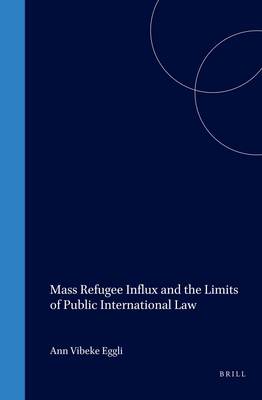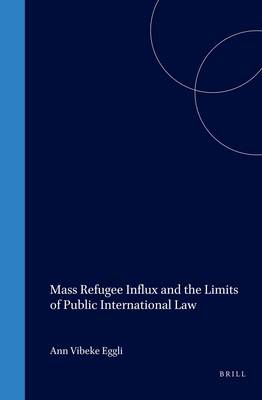
- Afhalen na 1 uur in een winkel met voorraad
- Gratis thuislevering in België vanaf € 30
- Ruim aanbod met 7 miljoen producten
- Afhalen na 1 uur in een winkel met voorraad
- Gratis thuislevering in België vanaf € 30
- Ruim aanbod met 7 miljoen producten
Zoeken
Mass Refugee Influx and the Limits of Public International Law
Ann Vibeke Eggli
€ 314,45
+ 628 punten
Omschrijving
Situations of mass refugee influx represent by their very size and urgency daunting evidence of human suffering and cruelty. Consequently, the level and quality of refugee protection in times of crisis is tested. The choices to be made have to take into due consideration the prevalent conditions and restraints. They will probably always result in compromises. The question is whom or what the compromises are about?
The focus in the present volume has been set on a detailed examination of some legal preconceptions commonly found in situations of mass refugee in-migration. The author concludes that situations when refugees arrive en masse do not, as a rule, qualify as a public emergency that threatens the life of the nation under contemporary international human rights law, and that mass expulsion of refugees as an emergency measure is prohibited at all times when this entails the risk of violating rights immune to derogation.
The focus in the present volume has been set on a detailed examination of some legal preconceptions commonly found in situations of mass refugee in-migration. The author concludes that situations when refugees arrive en masse do not, as a rule, qualify as a public emergency that threatens the life of the nation under contemporary international human rights law, and that mass expulsion of refugees as an emergency measure is prohibited at all times when this entails the risk of violating rights immune to derogation.
Specificaties
Betrokkenen
- Auteur(s):
- Uitgeverij:
Inhoud
- Aantal bladzijden:
- 344
- Taal:
- Engels
- Reeks:
- Reeksnummer:
- nr. 6
Eigenschappen
- Productcode (EAN):
- 9789041119216
- Verschijningsdatum:
- 1/08/2002
- Uitvoering:
- Hardcover
- Formaat:
- Genaaid
- Afmetingen:
- 155 mm x 235 mm
- Gewicht:
- 652 g

Alleen bij Standaard Boekhandel
+ 628 punten op je klantenkaart van Standaard Boekhandel
Beoordelingen
We publiceren alleen reviews die voldoen aan de voorwaarden voor reviews. Bekijk onze voorwaarden voor reviews.








